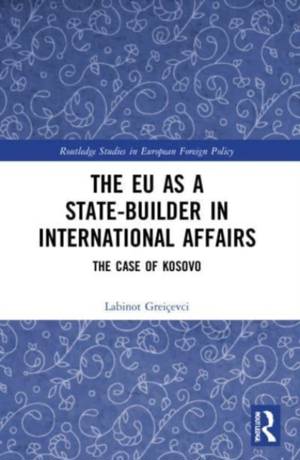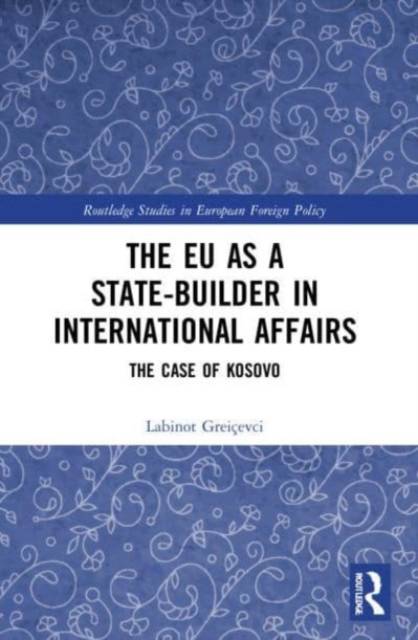
- Retrait gratuit dans votre magasin Club
- 7.000.000 titres dans notre catalogue
- Payer en toute sécurité
- Toujours un magasin près de chez vous
- Retrait gratuit dans votre magasin Club
- 7.000.0000 titres dans notre catalogue
- Payer en toute sécurité
- Toujours un magasin près de chez vous
Description
This book presents a systematic, in-depth, and comparative analysis of the role of the EU in the process of international state-building and is one of the first comprehensive books to do so at an international level.
Taking the case of Kosovo, it examines the EU's role in the birth of a state in comparison to other international actors from 1999 to 2008 and moves on to analyse the EU's role in norm diffusion in the post-independence period (2008-2020). Throughout the book, the author draws parallel analyses with broader debates and scholarly literature regarding the EU's role as a state-builder or norm-diffuser. Combining a liberal peace thesis framework with the normative power Europe (NPE) approach, it analyses how successful the EU and other international actors were in the diffusion of tangible and normative impacts in the process of state-building in Kosovo (1999-2008), along with the EU's diffusion of normative impact from 2008 to 2020. Finally, it scrutinises the role of the EU and other international actors in the processes of state-building through transference tools (funding) and overt tools (political role).
This book will be of key interest to scholars and students of EU foreign policy, European politics, peace and conflict studies, the Western Balkans, state-building, international organisations, and more broadly to international relations.
Spécifications
Parties prenantes
- Auteur(s) :
- Editeur:
Contenu
- Nombre de pages :
- 256
- Langue:
- Anglais
- Collection :
Caractéristiques
- EAN:
- 9780367685188
- Date de parution :
- 31-05-23
- Format:
- Livre broché
- Format numérique:
- Trade paperback (VS)
- Dimensions :
- 156 mm x 234 mm
- Poids :
- 381 g

Les avis
Nous publions uniquement les avis qui respectent les conditions requises. Consultez nos conditions pour les avis.






